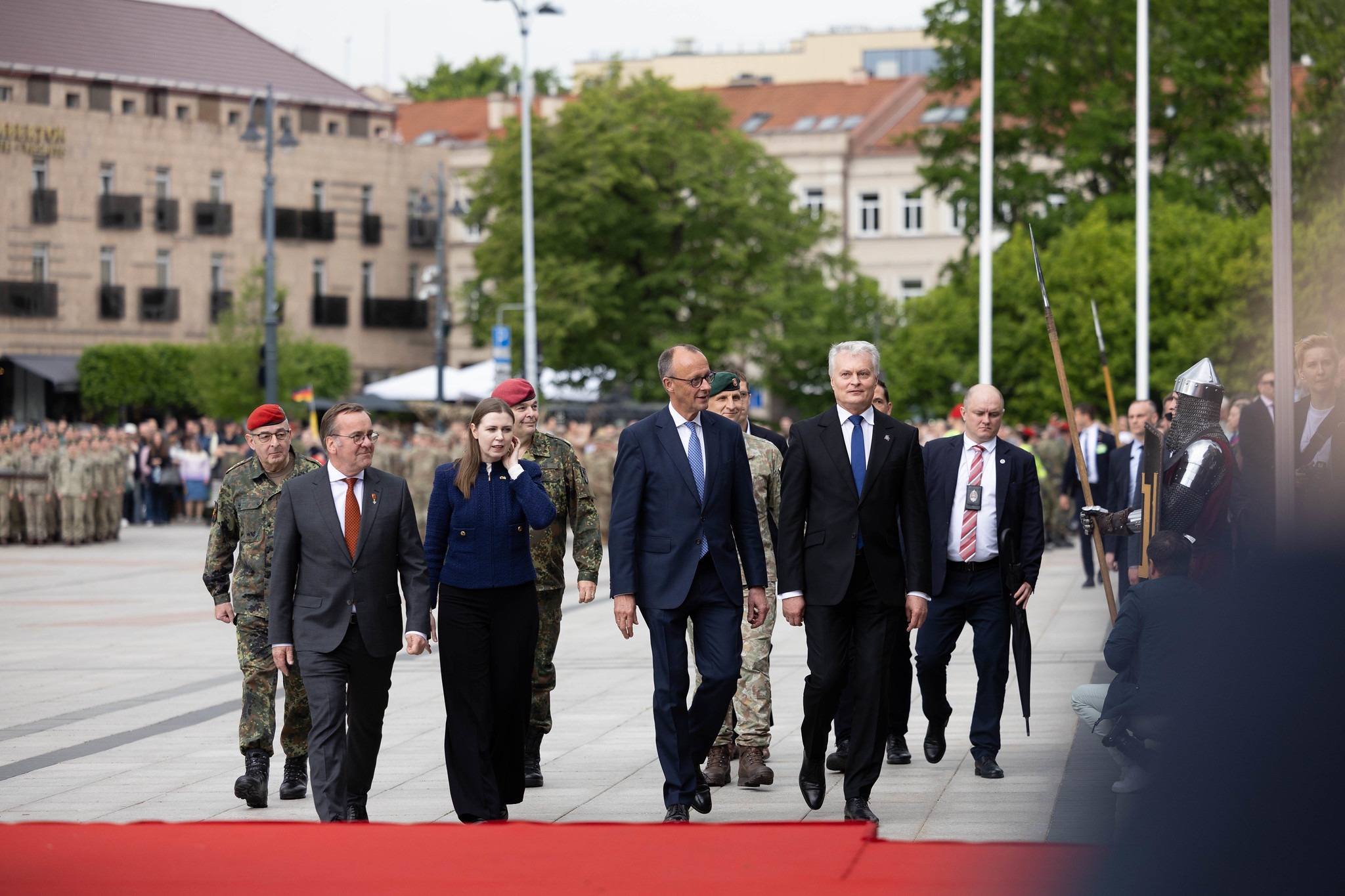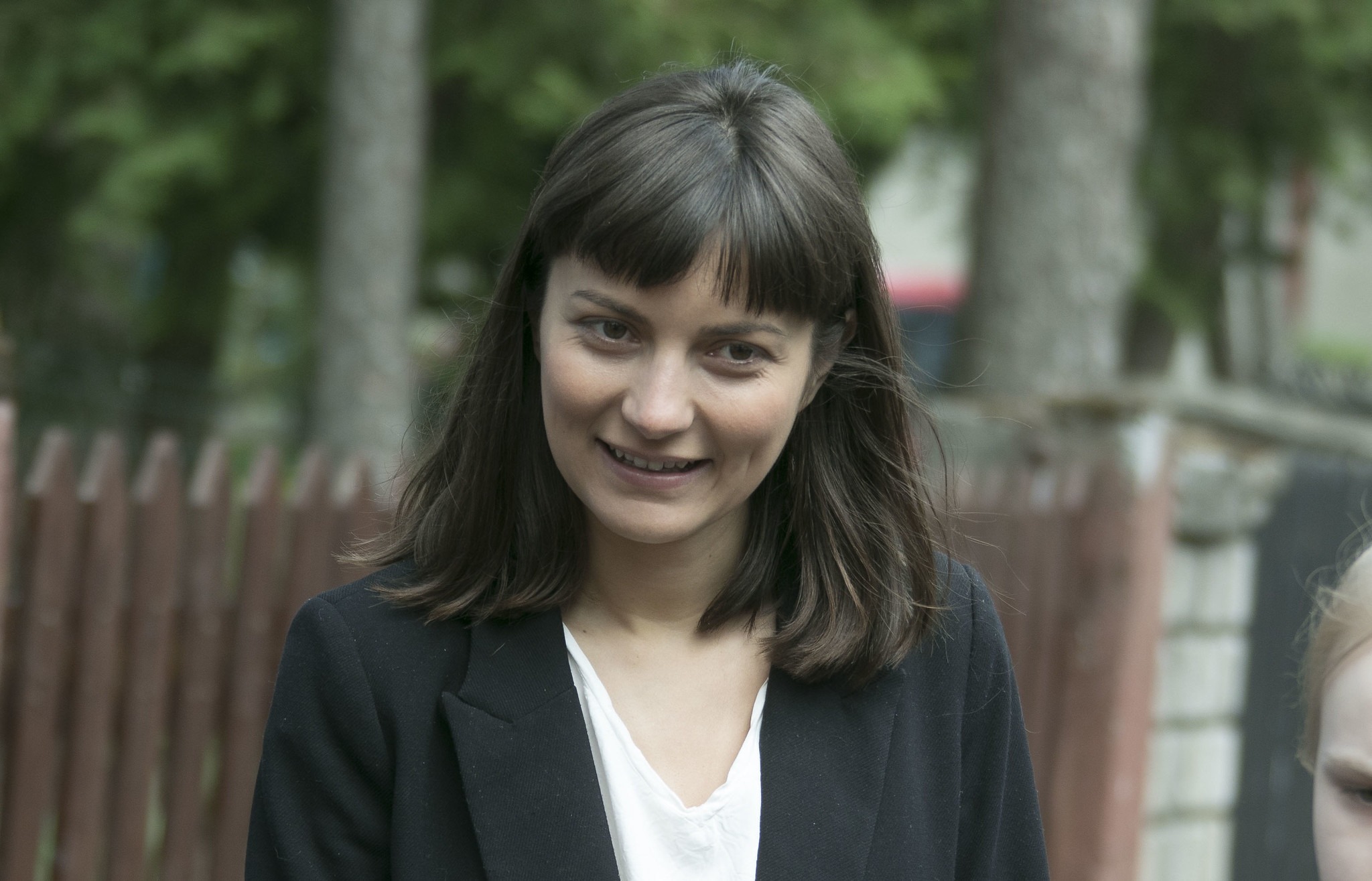
Key Insights:
- This month, Kremlin-aligned media in Lithuania concentrated on exploiting public frustration and deepening divisions by pushing narratives that questioned the government’s values and alignment. Particular attention was given to the May 9th “Victory Day” commemorations, which were used to accuse Lithuanian authorities, especially President Nausėda, of disrespecting history and distancing Russian-speaking communities. This messaging was combined with broader attacks on the government’s political and economic agenda, portraying it as ideologically disconnected from ordinary citizens and submissive to Western influence.
- One heavily promoted theme was the backlash to the stripping of Eduardas Vaitkus’s state award following his visit to Belarus (and the visit itself as well). Kremlin-aligned voices framed the government’s actions as politically repressive and authoritarian, suggesting that any dissent from official positions is met with disproportionate punishment. Vaitkus was portrayed not as a controversial figure but as a target of state overreach, reinforcing claims of democratic decline.
- Following that story, another ongoing theme appeared, centering on the delegitimization of state honors and institutions, with various voices questioning the credibility of national awards and the motivations behind them. Commentators have suggested that such honors are no longer tied to merit or patriotism, but are instead used to reward political conformity. This contributed to a broader narrative that Lithuania’s leadership lacks authenticity and is failing to represent the will of its people.
- Economic criticism served as another core angle, especially around rising taxes and austerity measures justified as part of national defense. Kremlin-aligned commentators mocked government messaging, such as claims that economic pressure helps “deter Russia”, as cynical propaganda masking elite self-interest. Proposals like the real estate tax were mocked, fueling the narrative that ordinary citizens are being punished while the political class enriches itself under the guise of patriotism.
- Germany officially inaugurating its 45th Armoured Brigade “Lithuania” became another focus for Kremlin-aligned narratives, with malign actors framing the deployment as a form of “weaponless occupation.” Commentators claimed it signaled the surrender of Lithuanian sovereignty and likened it to the historical cycle of occupation—first by Nazi Germany, then by the Soviet Union. The brigade’s presence was also framed as an “yet another” economic burden, with claims that rising taxes and the growing cost of living were tied to financing foreign troops rather than supporting the local population. This messaging aimed to stir public resentment, evoke historical trauma, and cast NATO’s presence as a threat rather than a safeguard.
Overview of the findings:
- As usual, four outlets of alternative media operating in Lithuania were analysed during this month, and 1049 (a slightly higher number compared to 933 articles throughout April) articles were scrutinised.
- Throughout the month, Kremlin-aligned media in Lithuania focused on amplifying strong anti-government sentiments and downplaying the threat from Russia by weaving together narratives that painted national leadership as authoritarian, disconnected, and subservient to Western powers. Coverage of the May 9th “Victory Day” was used to accuse Lithuanian authorities, particularly President Nausėda, of historical selectivity and erasure, as well as disrespecting Russian-speaking communities. The controversy over Eduardas Vaitkus’s visit to Belarus and subsequent award revocation was framed as state repression, while broader delegitimization of state honors served to question the overall credibility of national institutions. Economic dissatisfaction remained central, with rising taxes and austerity, especially the proposed real estate tax, portrayed as unjustified burdens imposed under “the false pretext of deterring Russia”. Across these topics, malign actors worked to foster distrust in Lithuania’s leadership, suggest NATO’s presence is harmful, and depict the country as a pawn in foreign agendas.
- The YouScan media monitoring tool managed to capture 52,985 content pieces (a visible increase compared to the 43,121 pieces captured the previous month) throughout May related to pro-Kremlin media in Lithuania, including different posts, videos, tweets, and comments written under them.
- The graph below indicates daily engagement levels throughout May. The most visible peaks appeared around the 9th of May commemorations, Vaitkus’ visit to Belarus, stripping of his award and the inauguration of the 45th German Brigade in Vilnius:

Three of the most engaged social media content pieces throughout April and their engagement metrics:


Vitas TOMKUS: I’M RETURNING MY STATE AWARD TOO – MAY THE GOVERNMENT CHOKE ON IT!




Nausėda ordered to destroy the opposition? RIP free speech in Lithuania
Story of the Month:
Targeting German Brigade Deployment in Lithuania
In early June 2025, Germany officially inaugurated its permanent military presence in Lithuania by stationing the Panzerbrigade 45 “Franken”—a fully equipped Bundeswehr brigade headquartered in Vilnius. This move marks a historic milestone in NATO’s deterrence posture and represents Germany’s commitment to the security of the Alliance’s eastern flank. The brigade is expected to reach full operational capability by 2027, with approximately 4,800 troops deployed on a rotational but continuous basis. However, the deployment has not gone unnoticed by actors seeking to undermine Western unity. Almost immediately, Kremlin-aligned media outlets in Lithuania began amplifying narratives critical of the German presence, framing it as a threat to regional stability and sovereignty. This development has opened the door for malign actors to exploit and distort the story, using disinformation tactics to sow distrust among Lithuanian citizens and NATO allies alike.

One of the examples of these disinformation efforts has been the reaction to a statement by German Chancellor Friedrich Merz, who declared that “the defense of Vilnius is also the defense of Berlin.” While intended to affirm NATO’s principle of collective defense, the remark was quickly seized upon by Kremlin-aligned media as proof of irrational policymaking. Merz was mocked and labeled mentally unfit, with pro-Kremlin commentators characterizing the permanent military presence as a form of foreign occupation orchestrated “by delusional Western elites”. The Lithuanian and German governments were portrayed as subservient to NATO’s broader geopolitical agenda, allegedly at the “expense of their own citizens’ interests”. This narrative not only sought to delegitimise political leadership but also portrayed NATO’s defensive posture as aggressive and unwelcome.
Kremlin-aligned actors also revived emotionally charged historical analogies, using the German brigade’s arrival to manipulate historical memory. The deployment was portrayed not as a measure of defense, but as a “weaponless occupation” and a de facto surrender of Lithuanian sovereignty. Echoes of the 20th century were deliberately invoked, equating the presence of NATO troops to the Nazi occupation and warning that a new Russian occupation could inevitably follow. Such narratives blurred the lines between allies and aggressors, sowing confusion and undermining trust in Lithuania’s security partnerships. In parallel, disinformation targeting Lithuania’s defense spending intensified. Pro-Kremlin media mocked the broader financing of Lithuanian national security, particularly after MP Gintautas Paluckas stated that defense expenditures could rise to 5.25% of GDP. Kremlin-aligned commentators ridiculed the announcement, suggesting that “it would be better to make peace with Russia so we wouldn’t have to spend money at all,” and sarcastically joked that Lithuania was now “kissing the West’s behind.” By portraying NATO allies as potential occupiers rather than protectors, these narratives aim to erode public trust in Western commitments and undermine cohesion within the Alliance.
Additionally, economic disinformation became a core tactic in this broader campaign. Coordinated messaging portrayed the brigade’s presence as a crippling financial burden on Lithuanian taxpayers, falsely linking rising living costs and projected tax increases to the stationing of foreign troops. These claims ignored the broader strategic value and potential economic benefits of enhanced national security and infrastructure investment. Still, by stoking fears of financial hardship, Kremlin-aligned narratives aimed to provoke frustration, disillusionment, and disengagement from NATO. In doing so, they sought to undermine the very foundation of collective defense: public support and political will.









